Tag: Doug Beck
House votes to roll back, rather than eliminate, vehicle inspection requirements
The state House has backed off of a proposal to eliminate vehicle inspections in Missouri. Instead it proposes that inspections would not be required until a vehicle is 10 years old or has more than 150,000 miles on it.

An earlier version of House Bill 451 would have done away with inspections for non-commercial vehicles in Missouri. Bill sponsor J. Eggleston (R-Maysville) said he knew his colleagues had a lot of concerns about that idea, so he reworked it.
Earlier story: Missouri House adopts bill that would eliminate vehicle inspection requirement
Eggleston said he talked to more than 100 House members from both parties about their issues with the bill before arriving at the current language. It would push back from 5 years to 10 the age at which regular inspections of a vehicle must be done, and creates the requirement that inspections begin when a vehicle has 150,000 miles on it.
Many lawmakers said they were pleased with the changes and Eggleston’s efforts to step back from his original proposal, but some still opposed the bill.
St. Louis representative Donna Baringer (D) argued that rolling back the vehicle inspection requirement will allow more unsafe vehicles on the road.
Baringer said there is no automatic way for the state to know when a given vehicle has reached 150,000 miles until it is sold.

Representative Doug Beck (D-St. Louis) said inspections target parts that wear down over time and should receive regular attention.
Some argued HB 451 no longer goes far enough and argued it should still propose a complete elimination of vehicle inspections. They said none of Missouri’s eight border states require inspections.
“Have you ever driven through any of those states?” Steelville Republican Jason Chipman asked Eggleston.
“Sure,” said the bill sponsor.
“How did you make it back here? It must have been dodging all those terrible vehicles that don’t get inspections that are just falling apart constantly. How did you make it back to this body?” a sarcastic Chipman asked.
“You know, it really didn’t look a whole lot different [from] our state,” said Eggleston.
Eggleston stressed that school bus inspections in Missouri would not be changed under his legislation, and used cars will face the same inspection requirements they do now.
The House voted 102-45 to send his bill to the Senate.
Missouri House proposes repeal of the state’s prevailing wage law
The Missouri House has proposed repealing the state’s prevailing wage law. Backers say the bill will allow more public works projects to move forward. Opponents say it will lower wages and drive more people onto public assistance programs.
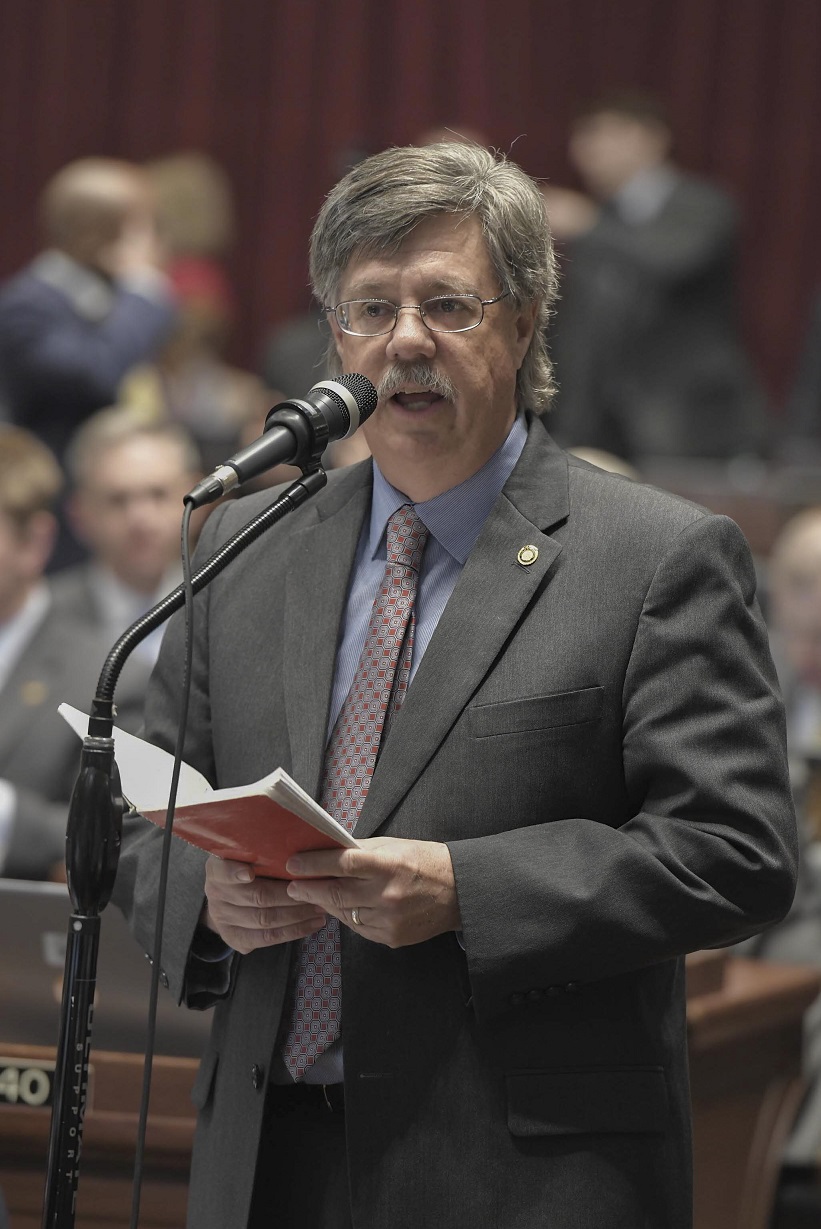
Missouri’s prevailing wage law sets a minimum salary that must be paid to individuals working on public projects, such as the construction or repair of bridges, school buildings, and fire stations. If House Bills 1729, 1621, and 1436 pass, bidders on such projects would pay the state or federal minimum wage, whichever is higher.
The bills are being carried on the House Floor by Representative Jeffery Justus (R-Branson). He is one of those who say eliminating the prevailing wage would allow public tax dollars to accomplish more in any given project because the law artificially inflates the wages paid to workers.
Democrats argued that repealing prevailing wage would cause workers to receive less in wages and benefits. St. Louis representative Karla May, a member of the Communication Workers of America (CWA) and of the Coalition of Black Trade Unionists (CBTU), said that law exists for a reason.
“The reason why the government had to step in to create prevailing wage is because of the greed of companies and contractors not willing to pay workers and not willing to maintain good working conditions,” said May. “The only reason laws exist is because we have bad actors.”
Representative Doug Beck (D-St. Louis), a pipefitter for the UA Local 562, told lawmakers that voting to repeal the prevailing wage law would be “foolish.”
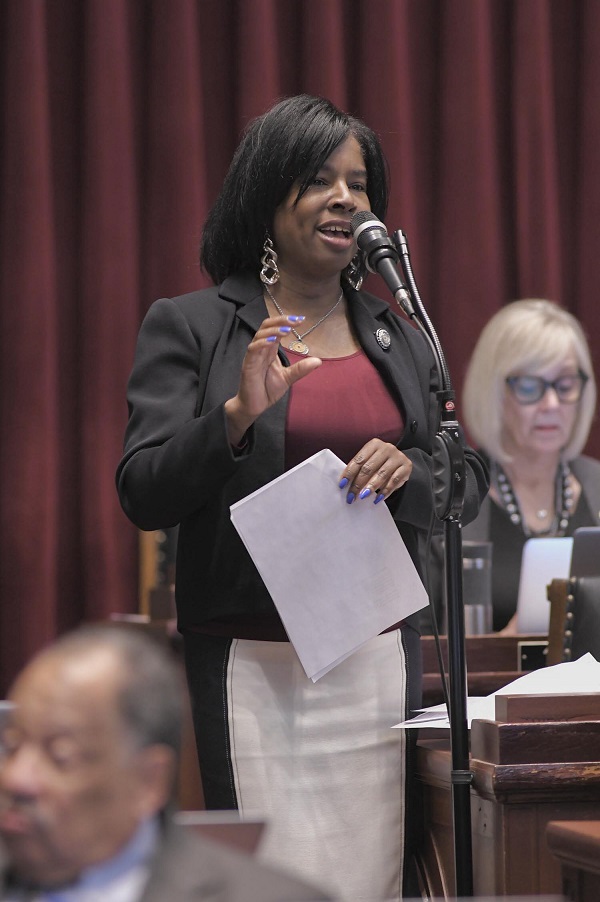
Republican Cheri Toalson Reisch (Hallsville), who worked as the city clerk and later mayor of Hallsville, said prevailing wage is not a union vs. non-union issue.
“This is a taxpayer issue. I don’t care if you’re a union representative or not. That has nothing to do with this bill,” said Reisch. “I’ve spent almost my entire life being a taxpayer watchdog. I have personally done millions upon millions and millions of water, sewer, street, and building construction projects that had to go prevailing wage. I can tell you it does add 30-percent to the cost to my taxpayers.”
The House voted 89-62 to send the bill to the Senate. Last year a similar proposal was sent to the Senate but that chamber failed to pass it.
House close to proposing a repeal of Missouri prevailing wage law
The state House has given initial approval to a repeal of Missouri’s “prevailing wage” law, which sets what local governments and school boards must pay for construction or maintenance work.
The wage is set on a county-by-county basis based on wage surveys for each type of work, such as carpentry, bricklaying, or electrical work. When a county does not have adequate wage data, the union rate for that trade is used.
Republicans supporting House Bill 104 say the prevailing wage law drives up the cost of projects, making local governments postpone work or forgo it altogether. The sponsor of HB 104, Representative Warren Love (R-Osceola), said his bill would allow more projects to move forward.
Love gave the example of an ambulance district in his district that was based in a house, which needed roof repair after a hailstorm. Love said other, similar repairs in the area were costing about $22,000, but because the ambulance district must pay prevailing wage, it would cost more than $63,000.
Democrats including Doug Beck (D-St. Louis) say the legislation is simply another attack on workers.
Grandview Democrat Joe Runions said eliminating prevailing wage would lead to more jobs going to contractors from other states, who would take their pay back out of Missouri.
“Then local contractors will come back and continue to have to fix what’s screwed up,” said Runions.
Opposition to HB 104 was bipartisan, but it was given first-round approval on a 93-60 vote.
Another vote could send HB 104 to the state Senate. It would be the continuation of the House Republican Supermajority’s labor reform efforts this year, which have also included passage of a bill to require annual permission from a worker before union dues could be taken from his or her pay, and a right-to-work bill that has been signed into law by Governor Eric Greitens (R).
Republicans’ labor reform agenda continues; House sends paycheck legislation to Senate
House Republicans have advanced another piece of their labor reform agenda, sending to the Senate legislation they call “paycheck protection.” Democrats decry the bill as an attack on unions, calling it “paycheck deception.”
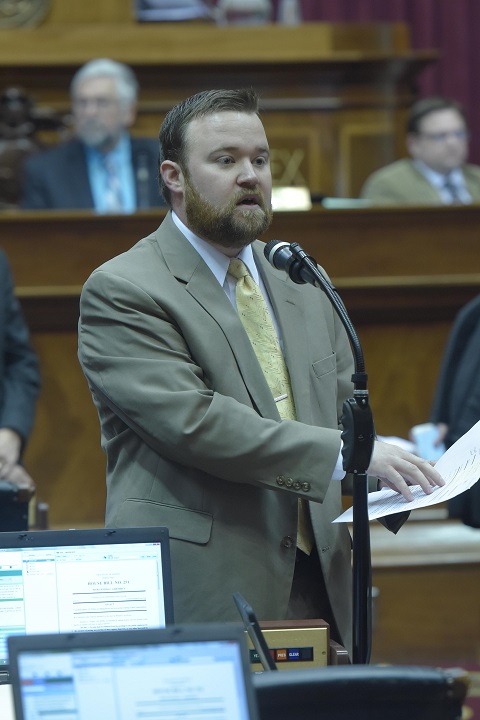
House Bill 251 would bar the automatic deduction of union dues and fees from a public employee’s paycheck without that employee’s annual, written consent. It also specifies that information on how such deductions are used must be available to employees.
St. Louis Democrat Doug Beck said the bill is an attempt to take away the voice of middle class workers.
Bill sponsor Jered Taylor (R-Nixa) rejected the argument that the bill is an attack on workers.
The legislation was sent to the Senate on a 95-60 vote.
House Speaker Todd Richardson (R-Poplar Bluff) said his supermajority will continue working on labor reform legislation that Republicans believe will improve Missouri’s business climate and bring more jobs to the state. The next such issue the House will debate will be project labor agreements.
Missouri House votes to send right-to-work to Gov. Greitens
The Missouri House has sent Governor Eric Greitens a bill that would make Missouri the 28th right-to-work state.
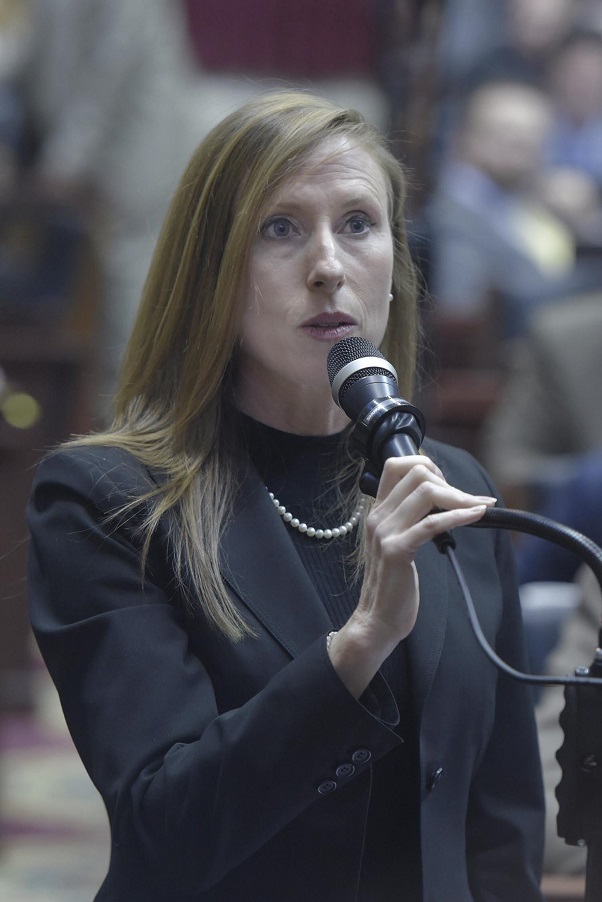
Senate Bill 19 would bar union membership or the paying of union dues from being a condition of employment. It would make violators of that prohibition guilty of a Class “C” misdemeanor and would require county prosecutors and the state Attorney General to investigate complaints or violations.
It also includes a “grandfather” clause, which would allow existing contracts between unions and companies to remain in place until they are changed or expire.
The House voted 100-59 to send the bill to the governor, who, it is anticipated, will sign it into law.
Republicans say right-to-work is an issue of worker freedom that will allow workers to decide how their money is used and who will represent them. They say some companies have not come to Missouri because it is not a right-to-work state, and say the bill’s passage will lead to more jobs and perhaps an increase in union membership.
Sikeston Republican Holly Rehder carried SB 19 in the House. She said it felt great and humbling to be carrying the bill that appears set to finally make law a long-time Republican priority.
Democrats say right-to-work states have lower wages and a lower quality of life, and say the passage of SB 19 will not help the state’s economy.
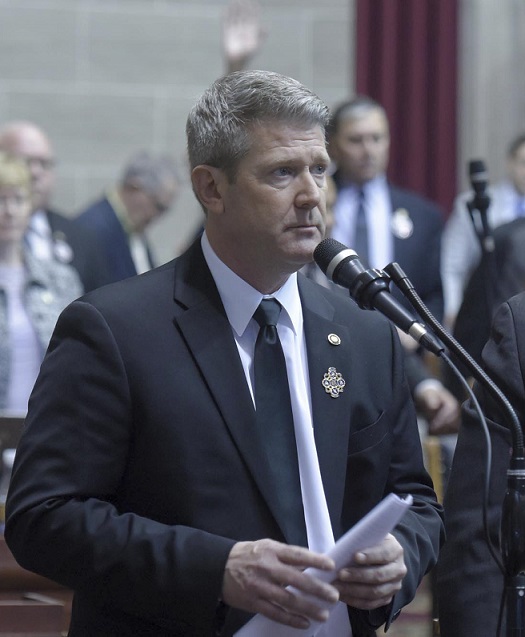
St. Louis Democrat and member of a local pipefitters union, Doug Beck, said it is a “sad day” for Missouri.
Democrats, as they did when the House debated its right-to-work bill (HB 91), proposed sending the issue to Missouri voters rather than the governor. That was rejected on a Republican-led vote. Democrats said the issue is one that should be decided by the people. Republicans said they proposed sending right-to-work to voters two years ago and Democrats opposed it then, and accused Democrats of favoring a vote now only because the governor is unlikely to veto the bill.
Proposals were also rejected that would have put a sunset on the bill, making it no longer law after five years unless renewed by the legislature; and that would have made it not apply to existing union-company contracts until their renewal, as opposed to when they are changed.
House Committee advances Senate right-to-work bill
A state House committee has advanced the Senate’s version of right-to-work legislation.
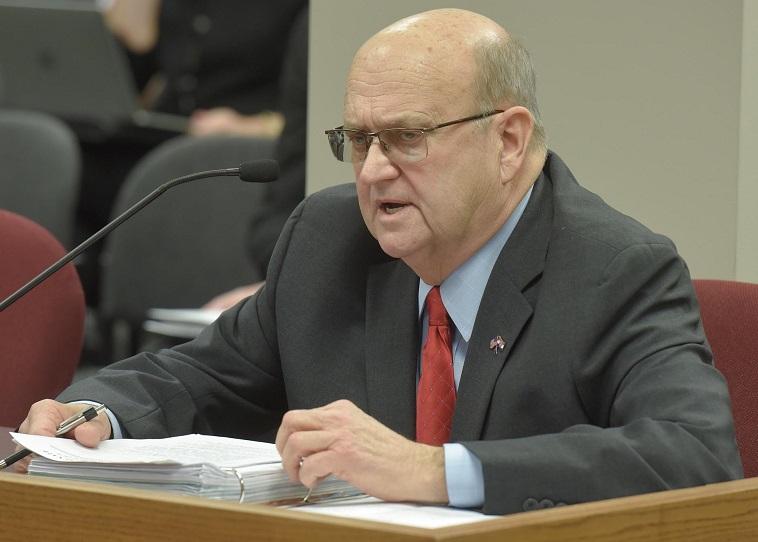
Senate Bill 19 is largely similar to House Bill 91, the right to work bill passed by the House earlier this month. The major difference between the bill sponsored by Rolla Republican Senator Dan Brown and HB 91 is that it includes a grandfather clause. That will allow contracts between employers and unions that exist at the time it becomes law to remain in place until they expire or are altered.
Earlier story: Missouri House sends fast-tracked right-to-work bill to the Senate
Republicans supporting SB 19 say right-to-work would give workers more freedom in being able to choose whether to be members of a union. Lake Ozark Republican Rocky Miller said he wants more union jobs in Missouri, and he believes right-to-work will increase union membership.
Democrats note a recent article that said Missouri union membership has increased to 9.7-percent.
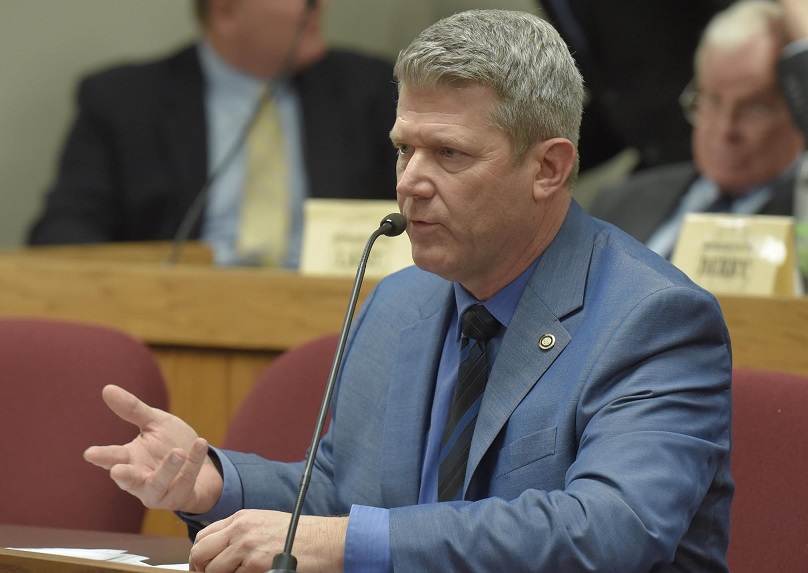
Democrats say right-to-work is an attack on unions that would drive down wages in Missouri. Representative Rory Rowland (D-Independence) suggested that right-to-work should not be a priority compared to other issues Missouri is facing.
SB 19 was passed out of the House Committee on Economic Development 7-2. It next goes to the House Rules Committee before reaching the House floor. If it is passed by the House with no changes, it would go on to Governor Eric Greitens, who has said he supports right-to-work.
The bill will be carried in the House by Sikeston Republican Holly Rehder, who sponsored HB 91.
Missouri House advances right-to-work bill, rejects sending it to voters
The state House has advanced a right-to-work proposal but rejected Democrats’ attempt to have Missourians vote on it.

Right-to-work is a priority for the Republican super majorities in both chambers and of Governor Eric Greitens (R). The plan the House voted on would bar union membership or the paying of union dues from being a condition of employment. It would make violators of that prohibition guilty of a Class “C” misdemeanor and would require county prosecutors and the state Attorney General to investigate complaints of violations.
Most Republican House members say the bill would make Missouri more competitive against neighboring states, would increase wages, and argue that requiring union membership violates employees’ rights.
Democrats say right-to-work will lower wages and would be a government overreach into contracts between unions and employers.
St. Louis Democrat Doug Beck proposed an amendment that would put right-to-work before voters if it is passed by the legislature and signed into law by Governor Greitens.
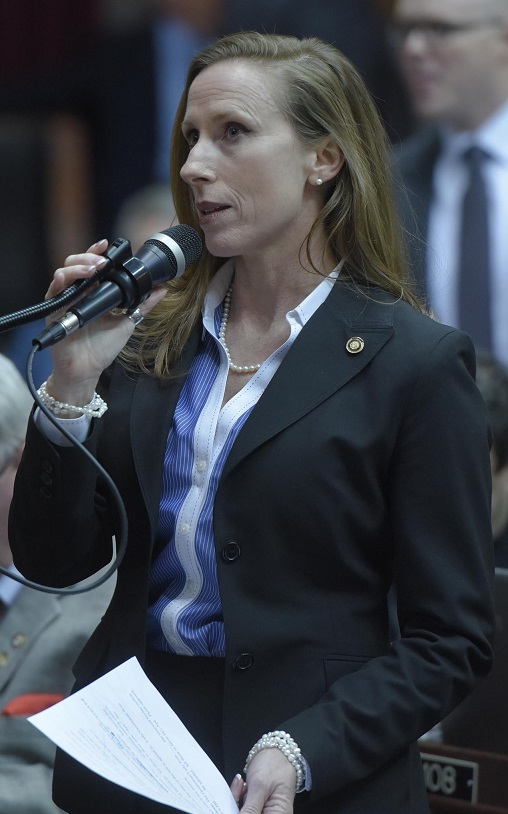
Republicans like Paul Curtman (R-Union) say voters spoke on the issue when they elected a Republican governor to go with Republican supermajorities.
He said Democrats are calling for a vote on the bill now that there is a Republican governor who won’t veto it, but years ago they opposed a Republican bill that would have put the issue to voters at a time when Democratic Governor Jay Nixon would have vetoed it.
Representative Clem Smith (D-Velda Village Hills) said the argument that the election of a Republican governor means the people want right-to-work doesn’t hold up.
Ballwin Republican Shamed Dogan said to put the issue to voters would defeat the purpose of having elected representatives.
Republican-led opposition carried a vote defeating Beck’s amendment, and the House then voted to advance the right-to-work bill 101-58. Another vote for the bill would send it to the state Senate.